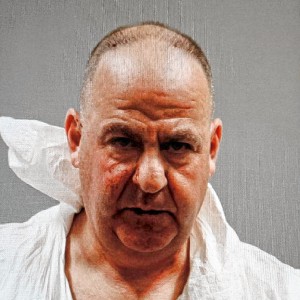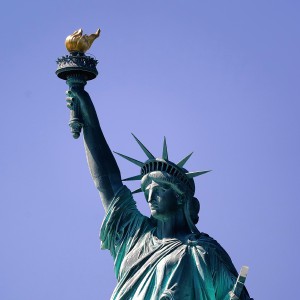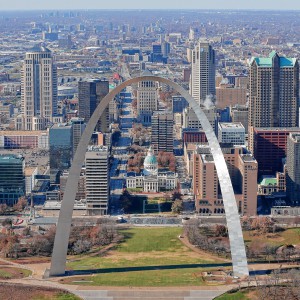Columnist Don Robinson: Experiencing a political revolution
| Published: 03-22-2017 9:06 PM |
There have been two great presidents in American history: Abraham Lincoln and Franklin Delano Roosevelt. We can learn a lot from studying how they became great presidents.
First, they were preceded by a parade of nonentities, men who staggered blindly toward catastrophe and had no clue how to deal with it.
In Lincoln’s case, his predecessors (Fillmore, Pierce, Buchanan) dithered while the union was collapsing. As Lincoln said in his second Inaugural Address, no one expected that the conflict between the Union and the Confederacy would be as “fundamental and astounding” as it turned out to be.
During the 1860 campaign, he refused to discuss what he would do if he won. He was not being coy; he had no idea. In those days, people respected such candor. But when the Confederates threw down the gauntlet at Fort Sumter, he recognized the challenge for what it was, a threat to our constitutional union, and he resolved to meet it head on, whatever it cost.
Roosevelt was preceded by Harding, Coolidge and Hoover. The latter two at least were good men, but they fiddled while flames tore at the regime’s foundations. Roosevelt campaigned on a promise to restore a balanced budget. Once in office, he summoned people like Harry Hopkins, Rexford Tugwell and (later) Luther Gulick and Henry Stimson.
Roosevelt made some foolish mistakes, like trying to “pack” the Supreme Court, and his call to arms for war against Germany was less than clarion until Pearl Harbor. But he eventually identified what had to be done, and he found a way to do it.
So where are we now? We sense that we live in truly desperate times (convulsions in the Middle East and East Asia, brutal inequality at home and abroad, climate change), but we do not know what to do about them.
The crisis has been gathering for some time. Its roots were there when Ronald Reagan took over, and in his genial way he tried to confront it. But it is now clear that he lacked the guts to do anything fundamental. His political successors, the Bushes, tried to advance Reagan’s agenda (trim the size of the government, stimulate the economy by cutting taxes, encourage enterprise by deregulation), but these measures, feebly pursued, were nowhere near radical enough to put Reagan’s vision, such as it was, to a real test.
Article continues after...
Yesterday's Most Read Articles
 ‘Our hearts were shattered’: Moved by their work in Mexico soup kitchen, Northampton couple takes action
‘Our hearts were shattered’: Moved by their work in Mexico soup kitchen, Northampton couple takes action
 Springfield man charged with murder in Holyoke stabbing
Springfield man charged with murder in Holyoke stabbing
 Amherst-Pelham schools look to address school absences with new plan
Amherst-Pelham schools look to address school absences with new plan
 Two men dump milk, orange juice over themselves at Amherst convenience store
Two men dump milk, orange juice over themselves at Amherst convenience store
 Next 5-story building cleared to rise in downtown Amherst
Next 5-story building cleared to rise in downtown Amherst
 Three Amherst Regional Middle School counselors absolved of Title IX offenses
Three Amherst Regional Middle School counselors absolved of Title IX offenses
Meanwhile their political opponents, Democrats in Congress and the White House, dared not confront Reaganism frontally. The Clintons lost the struggle for health care reform and pledged to “end welfare as we know it,” provoking one of their most principled officials, Peter Edelman, to resign in disgust.
As for the Obamas, they worked carefully and astutely, and with considerable success, to lift the awful stain of racial bigotry. And they achieved something in health care reform, which had eluded every Democratic president since Harry Truman. It is too early to render an overall verdict on Obama, but part of his legacy must be that he failed to mount an effective response to the destructive impulses of the GOP or to prevent the growing polarization of the system.
The last generation’s politics looks a lot like the 1850s and 1920s, and the current dysfunction in Washington confirms that impression. To top it off, we now have a strong-willed, but politically inexperienced, personally undisciplined and utterly hapless chief executive.
Yet the situation is far from hopeless. We may be on the threshold of a fourth American republic – the first having begun in the 1790s, the second and third coming under Lincoln and FDR.
One indicator of what may lie ahead comes from the Office of Management and Budget (OMB). Its director, Mick Mulvaney, has presented the administration’s radical, slash-and-burn budget. It represents a serious effort to cut the size and scope of the federal government, far beyond anything Reagan and his OMB director, David Stockman, ever put forward.
Political scientist Ted Lowi argued, in a classic study entitled “The End of Liberalism,” that the federal government had become a mosaic of heavily fortified three-legged empires, each consisting of an agency of the executive branch, a committee or subcommittee of Congress, and a host of lobbyists. Lowi said that these empires, once established in law, were effectively beyond political control.
The budget submitted this month represents the first serious challenge to this system of governance since its inception during the New Deal and its vast expansion by LBJ’s Great Society. Naturally many in Congress, from both parties, are joining armies of lobbyists in screaming “bloody murder!”
The Washington Post reported this week that the administration has installed trusted aides at various agencies to guard against sabotage of their determined effort to cut the federal government to the bone. Keep an eye on Congress, to see how this revolution in governance fares there.
There are other indications that the tumult we are experiencing may be the birth pangs of a fourth American republic. One is the triumphal ride of Neil Gorsuch to a seat on the Supreme Court, claiming fidelity only to the Constitution and the laws. Republicans in the Senate, having recovered a sense of “courtesy” toward a president’s nominees, is granting him not only a hearing, but a hero’s welcome. What to expect from Justice Gorsuch (assuming his nomination is confirmed) is not clear, but one good guess is that he will push for a strong rebirth of federalism.
Even the State Department, led by Rex Tillerson, has joined the chorus affirming the shift to a severely trimmed national government. It has fallen to James Mattis, secretary of defense, to point out that if you gut funding for the State Department, you will not save money; you will need to buy more weapons – and they aren’t cheap.
Where does all this leave us, politically? If the fourth republic involves a return to a decentralized, federal union (and that would not be all bad), who will lead us to it? Not, I think, Elizabeth Warren or Bernie Sanders. I hope not Ted Cruz or Marco Rubio. Perhaps Mike Pence?
In any case, it will almost certainly involve a revolutionary change in our national party system. It might also present an opening for someone like our own Gov. Baker, or Missouri’s brilliant young governor, Eric Greitens. Keep an eye out for him.
For sure, politics will be harrowing and tumultuous for the foreseeable future. Revolutions always are.
Don Robinson, a retired professor of government at Smith College in Northampton, writes a regular column published the fourth Thursday of the month. He can be reached at drobinso@smith.edu.
]]>

 Columnist Razvan Sibii: How to welcome a refugee family into your community
Columnist Razvan Sibii: How to welcome a refugee family into your community Guest columnist Jay Fleitman: Can’t leave Hamas intact
Guest columnist Jay Fleitman: Can’t leave Hamas intact Walter Krzeminski: Locals who homered at Fenway for the home team
Walter Krzeminski: Locals who homered at Fenway for the home team Mary Collins: Let’s create 413 Day
Mary Collins: Let’s create 413 Day
